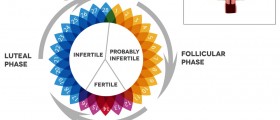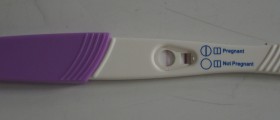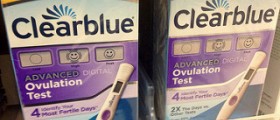
A luteal phase defect can be one cause related to infertility and is also one of the most easy to treat. A shortened luteal phase is anything lasting less than 10 days, and pregnancy will not likely be sustained. The average luteal phase lasts for 11-17 days and a defect can be detected by monitoring the basal body temperature over a period of months and having a physician perform a series of tests. Some women with LPD will want to see a medical professional in order to determine if luteal phase treatment with vitamin B6 would be an option.
Also known as pyridoxine, vitamin B6 can be found in whole grains, liver, eggs, cereal, fish, meat and legumes. Vitamin B6 does more than help with fertility, it also helps a woman experiencing severe premenstrual syndrome alleviate the side effects and any relating depression. Vitamin B6 is one of the most common and natural ways in which to treat a luteal phase defect. Some experts recommend a woman adds 100-200 mg of vitamin B6 to the daily diet to help increase the length of the luteal phase. However, prior to doing this it is advised that a woman consults with her physician in order to determine it will be safe. Of all the vitamins, B6 is one of the most important to overall development of a healthy immune system and maintaining overall health.
Vitamin B6 also plays another role in fertility by helping with a chemical imbalance and increases fertility in women. When trying to conceive, it is important that a woman makes sure she has adequate amounts of the vitamin in the daily diet in order to maintain a healthy luteal phase as well. Luteal phase defect treatment with vitamin B6 is not something that will not work for every woman, but studies have shown it is a benefit to some females. When dealing with a LPD, it is important for a woman to pay attention to her health and before adding a vitamin supplement to her diet, it is first recommended she consults with a medical professional in order to make sure it is safe.
















Your thoughts on this
Loading...